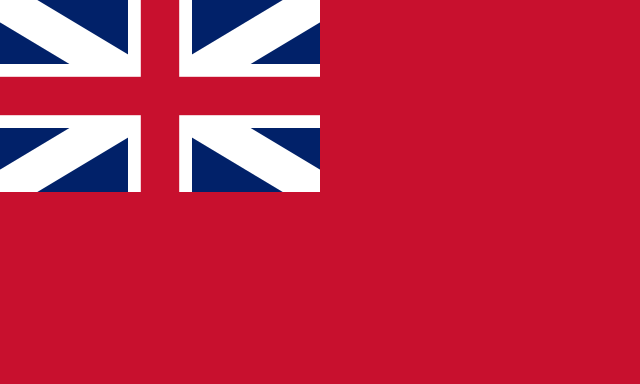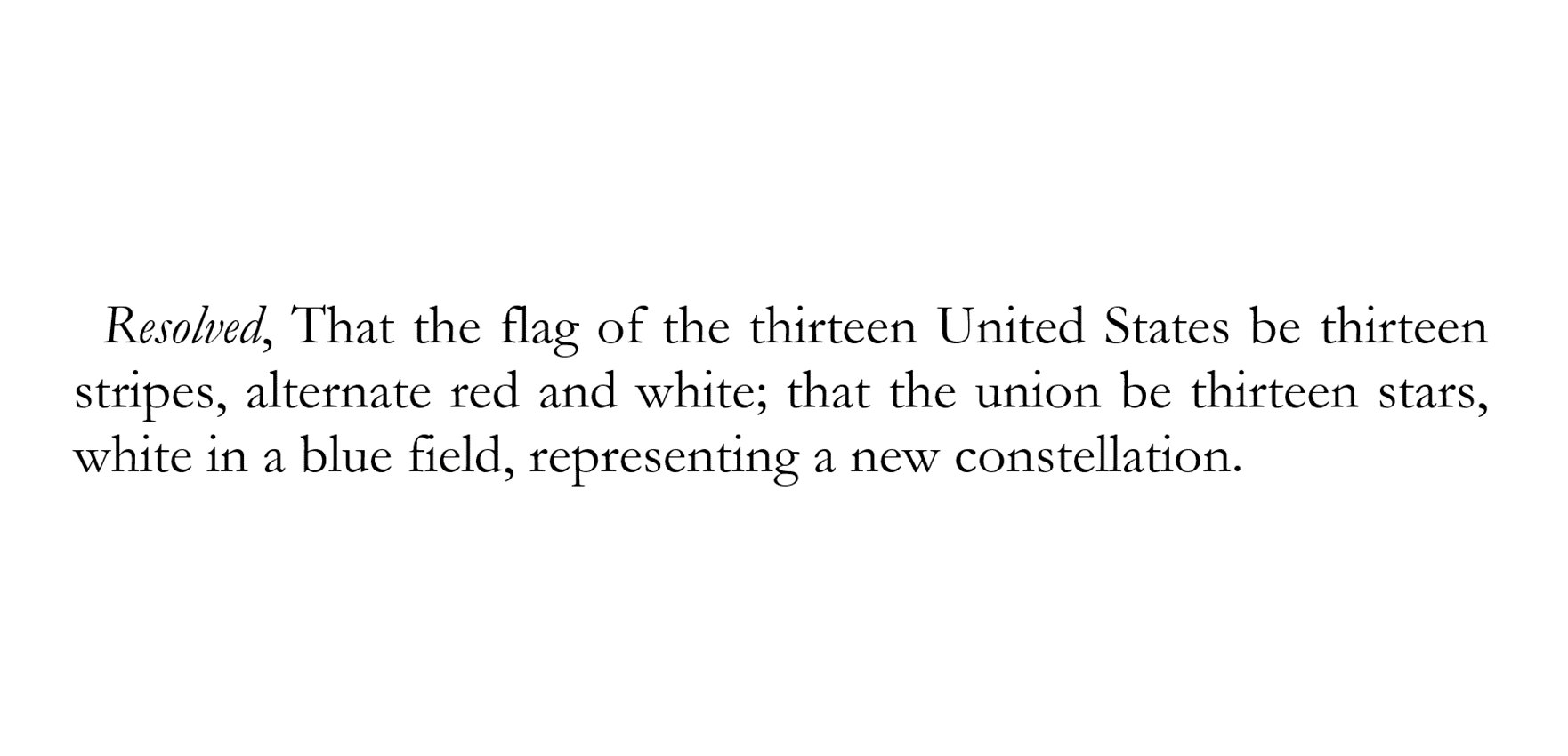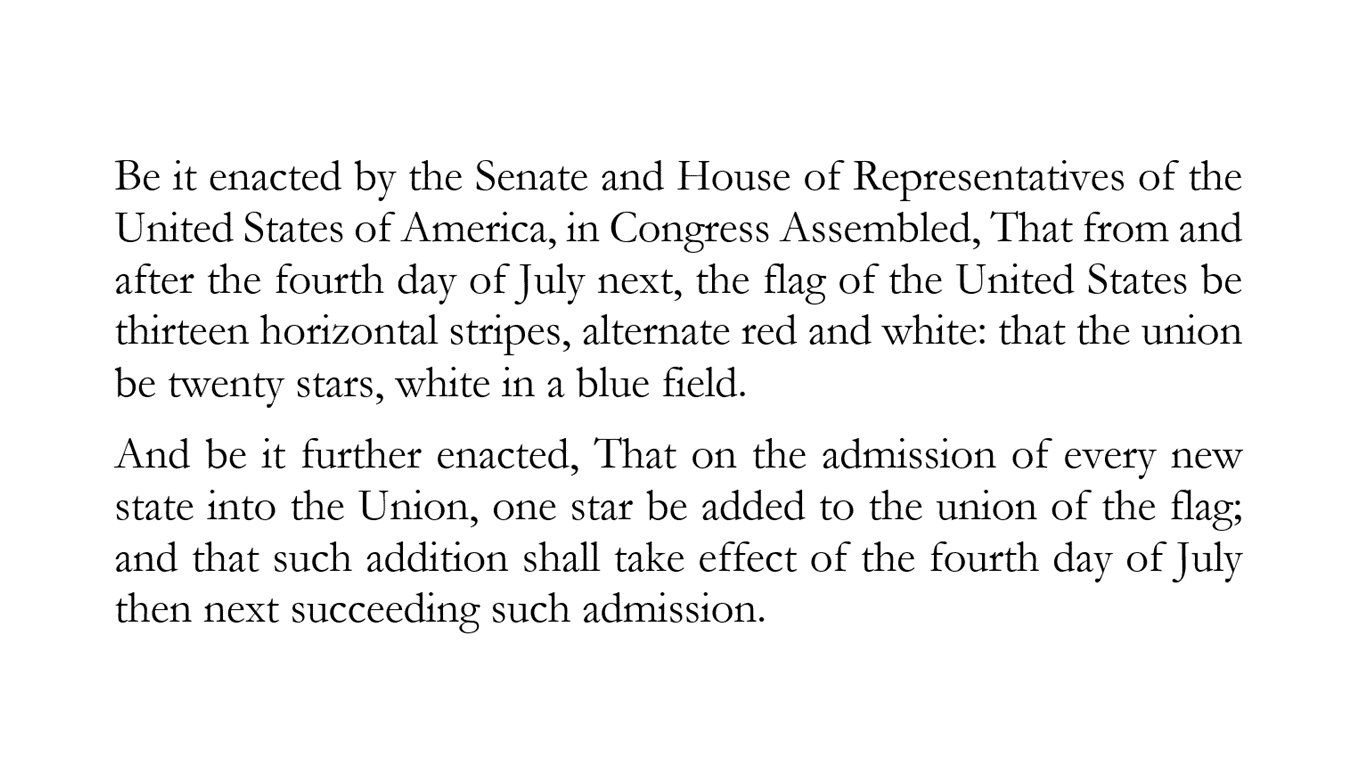The United States of America has had 27 different flags.
And this one, with a British Union Jack in the top left corner, was the very first...

The United States of America has had 27 different flags.
And this one, with a British Union Jack in the top left corner, was the very first...

Later called the Grand Union Flag or the Continental Colours, it was first hoisted on 3rd December 1775 on the warship Alfred and then in Charlestown on 1st January 1776 on the orders of George Washington.
But it was, technically, an unofficial flag.

Why did it look like that? Well, it seems to have been made by adding white stripes to the British civilian ensign, a flag used for all civilian ships and vessels.
Six white stripes were added to make thirteen in total, representing the Thirteen Colonies.

One theory goes that the Grand Union Flag was also a reference to the ensign of the East India Company, which does look rather similar.
Why would they do that? Well, the East India Company was semi-autonomous from the government in Westminster. A sign of intent, perhaps.

There was also some precedent. Massachusetts and New York had already been flying their own flags, both of them altered verions of British civil and naval ensigns.

It should be added that this version of the ensign featured a Union Jack before the Acts of Union in 1800, which made Ireland a part of the United Kingdom and added St. Patrick's Saltire to the flag.
You can see the difference here:

So that's the Grand Union Flag. What came next? It was used until 1777, a year after the Declaration of Independence. That year, on the 14th June, the Continental Congress passed the first (and very brief) Flag Act:

The layout of the stars was not specified, so the flag could be laid out in any number of different ways.
The most famous version is the so-called Betsy Ross Flag of 1792, with its distinctive circle of stars. But the original design from 1777 looked rather different.

In 1794 the second Flag Act was passed, which called for a flag with fifteen stars and fifteen alternating red and white stripes to represent the admission of Vermont and Kentucky to the Union.
This was the Star-Spangled Banner that inspired America's national anthem.

No new Flag Act was passed for twenty years, and so the fifteen star, fifteen stripe flag remained the same even as new states were admitted.
But in 1818 the third Flag Act was passed, including a reversion to 13 stripes, and the status quo as it still exists was established.

The flag was changed another twenty five times, as new states joined and new stars were added. The current version was adopted in 1960, after Hawaii became the 50th state.
A world-famous design which can be traced, partially, back to the British ensigns of the 18th century...

Anyway, what's the investigation of flags called? Vexillology. It's the study of flags, their meaning, their history, their design, their colours, and any and all flag-related things.
And somebody who designs flags is called a vexillographer.
